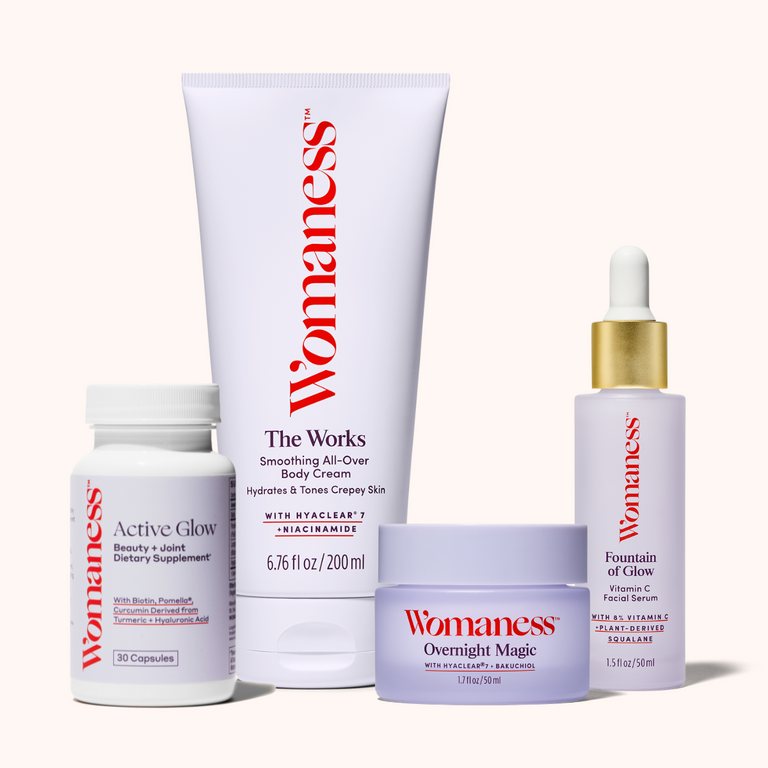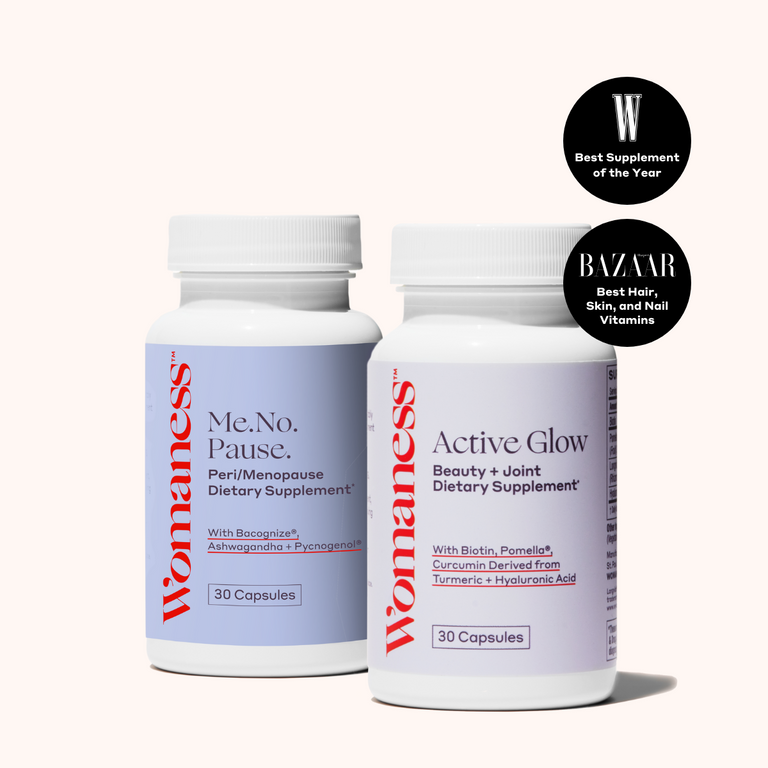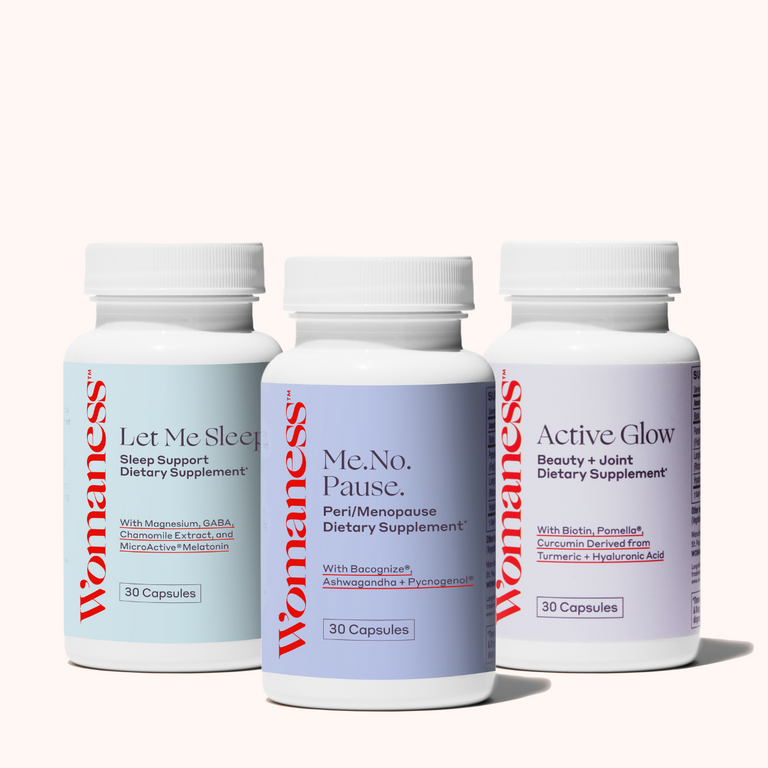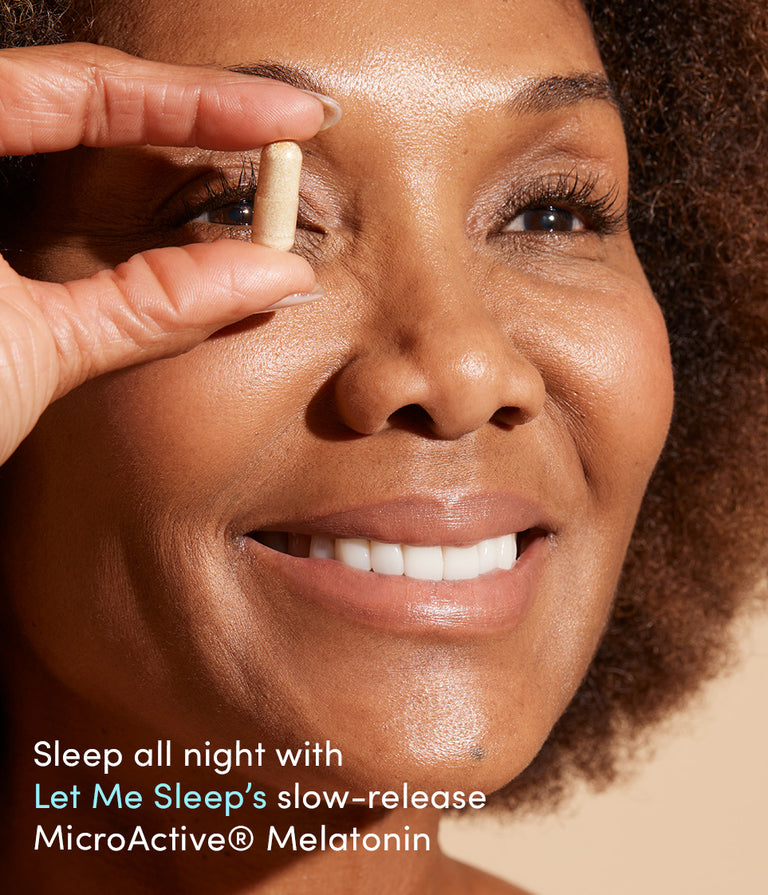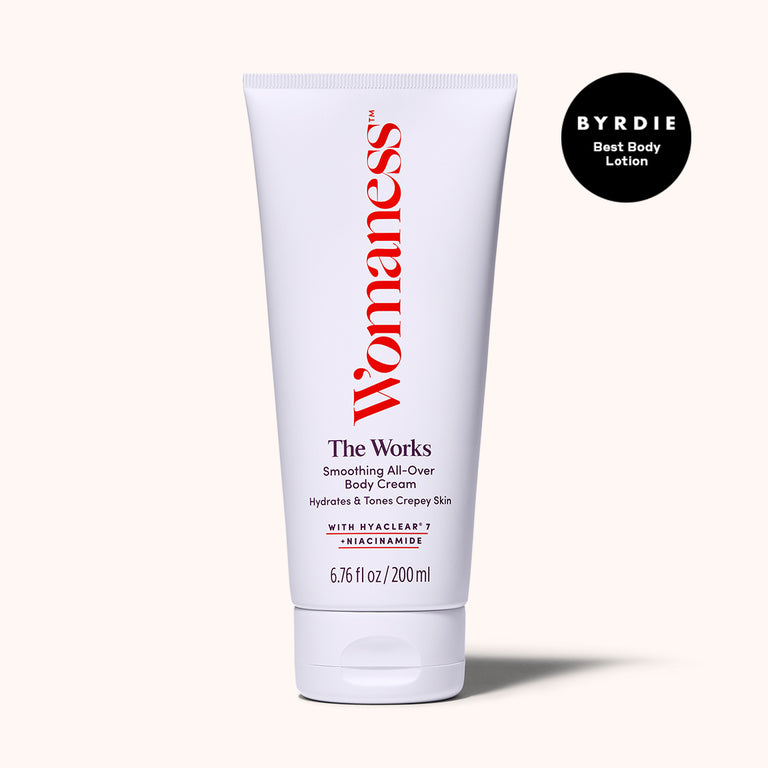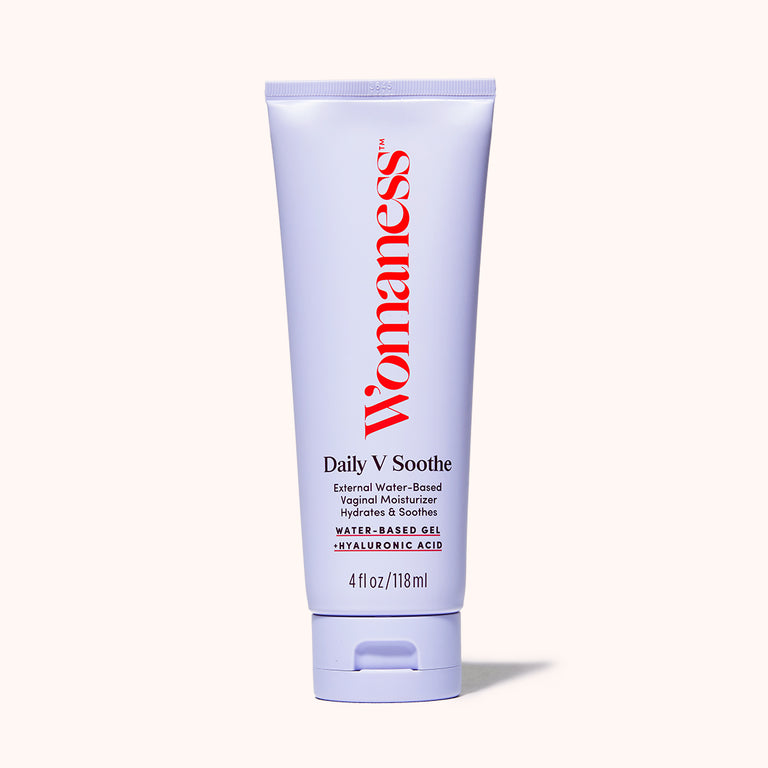By Stephanie Traver, WHNP, MSCP 6-Minute Read

Stephanie Traver is a Women's Health Nurse Practitioner (WHNP) and a certified clinician by the Menopause Society. As the founder and owner of Vital, a midlife and menopause clinic near Boulder, CO, Stephanie has dedicated her 20-year career to innovation and advocacy. Follow her on Instagram.
You are resourceful, educated, productive, and smart. You know yourself! You know what you like, what works, and what doesn’t work. Or at least you thought you did. For many women, your 40s are clicking along with so many things you need and want to do. Suddenly you can’t sleep like you used to, you don’t have the energy you once did, and your favorite pants won’t button anymore. What happened? Perimenopause happened.
If this sounds familiar, it’s time to find the perimenopause toolkit. We’ve got you (and your friends) covered. Here we go!
First, let’s make sure we are on the same page. Simply put, menopause is the last menstrual period, and it is confirmed after 12 consecutive months have gone by without a menses. Perimenopause doesn’t have a concrete definition, which is confusing. Essentially, it’s the time around menopause and it can last 10 or more years. This is a time around menopause when hormones and cycles start to change. It can begin in your 30s (and for some women, it will last into their 60s).
“Perimenopause is not something we can avoid, but it can be that thing that wakes you up. Embrace the experience and create something powerful!”
Imagine your hormones have gone on a very familiar journey month after month for many years. They have needed the same things to get the same outcome. To produce one ovulation, you need this much progesterone, this much estrogen, this much luteinizing hormone, and so forth. After a while, the hormones start getting a message that the ovarian reserve (the number of good eggs you have left) is reducing, so it starts to adjust the recipe to try and get the same result. Some recipes work and some don’t, so it tries again. As it does this, the familiar journey starts to look a bit more like a roller coaster. It’s not so familiar and the outcomes are not so predictable. If we take a blood or urine sample on any given day, it’s like taking a single moment from the roller coaster. You might be on the high point, the low point, or perfectly in the middle. This is why labs may look normal even if you have a long list of new symptoms. Regardless, you know something has changed, and that fact still matters!
So how will I know when I've entered perimenopause?
I’ll know it’s time when I have hot flashes and mood swings, right? My period will get super light and start spacing out? I’ll get a test from my doctor that will tell me? I will get an invitation from the national perimenopause society? My AARP card will arrive in the mail?
Common things are common for a reason, so yes, you may have hot flashes or night sweats as your first symptom (vasomotor symptoms). You make ask yourself if your partner always chewed so loudly or if the commercials were always this sad while shaking away another unwelcome tear. It’s also possible that you will keep your literal and figurative cool. There’s no one-size-fits-all way to experience perimenopause. Hormone receptors are found all over the body, so symptoms can be just as varied. Women are surprised to find that perimenopause may include things like:
• Losing hair on your head while unwanted hair starts to appear on your face (where are my tweezers?)
• Not feeling like yourself. Losing interest or motivation in things you loved. Feeling short tempered or irritable, finding that you spend a lot of energy worrying.
• Brain fog, loss of mental clarity or feeling less productive.
• Low libido, pain with sex, a changing vulva, or dryness.
• Heavy, long, irregular or more painful periods.
• Joint pain or slowed recovery from exercise.
• Itchy skin, dry eyes, or changes in body odor.
The list could go on and on, but you get it. These are not the hot flashes and mood swings the Golden Girls were staving off with a paper fan. Before you head over to Google how to stop aging and never go through menopause, there is good news! These can be the best years of your life when armed with a few simple tools. Remember, you know who you are, you know what you like, and you aren’t alone on this journey. Knowledge is power. The more you know about your options the better you can navigate anything new.
Your Perimenopause Toolbox
1. Experts
Find a healthcare provider who is a menopause expert. A trusted partner who will listen is vital during this important time of life. Every woman deserves to have a well- informed provider talk her through the available options and someone who supports her in shared decision making. If you leave feeling like you haven’t been heard, you feel pressured, or like your provider wasn’t comfortable talking about menopause, it may be worth circling back or finding a second opinion. There are many incredible health care providers who just haven’t had time or haven’t prioritized getting updated education on menopause. There is no shame in seeking out an expert.
2. Nutrition
A diet rich in protein and fiber will serve you well in perimenopause. I recommend 90 to 100 grams of animal protein a day. If eating a vegetarian or vegan diet, then opt for variety in your plant protein to round out the nutrition. A goal of 25 grams of fiber from plant sources of all colors will keep your digestive tract healthy. I love chia seeds as a plant-based source of both protein and fiber that will absorb 10 times its weight in water to help keep you regular. When starting something new, always start with a little to see how your body reacts and increase over time.
3. Supplements
Supplements can help support a varied and healthy diet. There are supplements like magnesium and ashwagandha that can help with specific symptoms like mood, sleep, mental clarity, and breast tenderness. There are also key dietary supplements like vitamin D and collagen that support longevity and healthy aging. Always discuss new supplements with your provider as they can interact with health conditions and medications.
4. Menopause Hormone Therapy
There are many options available for local and systemic hormone therapy. Having a conversation with a well-informed provider about these options can be very empowering. Perimenopause is an ideal time to have this conversation because the timing can make a big difference in what benefits may be available and what options may be safe for you. Leading experts claim that most women starting hormone therapy within 10 years of their last period will have more benefits than risks. Only you and your provider can decide if this is the right choice for you.
5. Prescription Medication
There are many FDA-approved options to treat the symptoms of perimenopause. These are hormone-free medications that can improve sex drive, treat hot flashes, improve sleep, or reverse bone loss, just to list a few. As always, a conversation with a healthcare provider comfortable prescribing these is needed to ensure safety and discuss possible interactions and side effects.
6. Exercise
Resistance training can build muscle to help combat insulin resistance and belly fat, strengthen bone to prevent osteoporosis associated with estrogen decline, decrease cortisol and increase dopamine to improve mood, sex drive, and sleep.
7. Lifestyle
Many small changes that can add up to large improvements. Sleep hygiene refers to practices of avoiding screen time before bed, focusing water intake earlier in the day, and using mindfulness practices like meditation to help achieve more quality sleep. Many women have reduced alcohol tolerance as they age. Alcohol intake can reduce sleep quality, make mood disorders worse, contribute to weight gain, and exacerbate hot flashes.
8. Skincare
Skin changes (dryness, sensitivity, fine lines, crepiness!) are all too common in perimenopause, making it a smart time to rethink your skincare and select solutions that are right for the skin you're in now. Look for plant-based ingredients with clinical studies backing them up, think about how your diet affects your hydration, and learn the kind of routines you need to keep glowing in peri and beyond.
9. Community
Validation in your experience is powerful. You are not alone! Having a community who you can be real with to share your wins and your challenges helps everyone. Whether it’s a book club, a private Facebook group like The After Party, or pottery on Thursdays, find your people.
10. You
At the end of a hot yoga class, after holding the plank for what felt like 60 minutes, my instructor would smile in a way you could somehow hear and say, “Doesn’t it feel great to be alive!” That discomfort we all felt together was making us stronger. It was a choice we had to show up, lean in, and grow. Even in the discomfort, it was an opportunity to wake up and really feel the sensations. Perimenopause is not something we can avoid, but it can be that thing that wakes you up. Embrace the experience and create something powerful!
Learn more from Stephanie Traver at vital-menopause.com and be sure to follow her on Instagram.
Photography by Tim Gillies
More For You
Womaness Woman: Ann Marie McQueen
What's Happening Here? Sleep Issues & Insomnia
Ask a Doctor: "What the Heck is Perimenopause?

